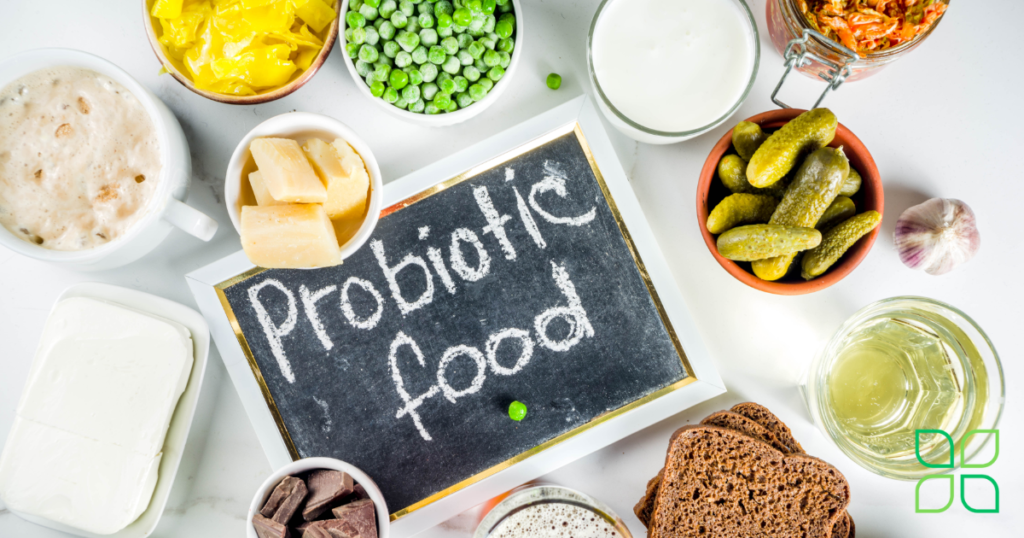Natural Ways to Reduce Methane in Your Gut
Do you often experience bloating, discomfort, or other digestive issues? You might be surprised to learn that the culprit could be an overproduction of methane in your gut. Methane is a gas produced by certain bacteria during the digestion process, and it can lead to various gastrointestinal problems. Luckily, there are natural ways to reduce methane and improve your gut health. In this comprehensive guide, we’ll explore effective strategies to decrease methane production naturally, ensuring a healthier and more comfortable digestive system.

Understanding Methane in the Gut
Methane is produced in the gut by a specific group of microorganisms known as methanogens. Unlike other gut bacteria that produce hydrogen and carbon dioxide, methanogens convert these gases into methane. This process is a normal part of digestion, but an excess of methane can lead to issues such as constipation, bloating, and irritable bowel syndrome (IBS).
The Impact of Methane on Digestive Health
Research indicates that approximately 30% to 62% of people with IBS experience methane overproduction. High levels of methane can slow down intestinal transit, leading to constipation and discomfort. Understanding the role of methane in gut health is crucial for managing these symptoms effectively.
Natural Strategies to Reduce Methane in Your Gut
1. Dietary Adjustments
What you eat plays a significant role in methane production. Here are some dietary tips to help you reduce methane naturally:
- Increase Fiber Intake: Consuming a balanced amount of soluble and insoluble fiber can promote healthy digestion and reduce methane production. Foods like oats, fruits, and vegetables are excellent sources of fiber.
- Limit Fermentable Carbohydrates: Some carbohydrates are highly fermentable and can increase gas production. Consider following a low-FODMAP diet, which reduces fermentable oligosaccharides, disaccharides, monosaccharides, and polyols.
- Balance Your Diet: Ensure you have a balanced intake of proteins, fats, and carbohydrates to support overall digestive health.

2. Probiotics and Prebiotics
Supporting healthy gut bacteria can help mitigate methane production. Consider integrating probiotics and prebiotics into your daily routine:
- Probiotics: These beneficial bacteria can help balance your gut microbiome. Look for strains like Lactobacillus and Bifidobacterium, which are known to support digestive health.
- Prebiotics: These are the fibers that feed your beneficial gut bacteria. Foods like garlic, onions, and bananas are excellent sources of prebiotics.

3. Herbal Remedies and Supplements
Certain herbs and supplements have been shown to reduce methane production and improve gut health. Consider the following options:
- Peppermint Oil: Known for its soothing properties, peppermint oil can help relax the intestinal muscles and reduce gas production.
- Ginger: This root has been used for centuries to aid digestion and reduce bloating. Add fresh ginger to your meals or drink ginger tea regularly.
- Activated Charcoal: This supplement can help absorb excess gas in the gut, providing relief from bloating and discomfort.

4. Lifestyle Changes
Your lifestyle choices can significantly impact gut health and methane production. Consider the following changes:
- Stay Hydrated: Drinking enough water supports healthy digestion and reduces constipation, which can exacerbate methane production.
- Exercise Regularly: Physical activity promotes regular bowel movements and can help reduce gas buildup.
- Manage Stress: Stress can negatively impact gut health, so practice stress-reducing techniques like meditation, yoga, or deep breathing exercises.

Scientific Insights and Statistics
Understanding the science behind methane production can provide valuable insights into managing it effectively. Studies show that methanogens are more prevalent in individuals with constipation-predominant IBS. Moreover, a study published in the Journal of Gastroenterology found that individuals with higher methane levels tend to have slower intestinal transit times.
Incorporating dietary changes, probiotics, and lifestyle modifications has been supported by various studies as effective ways to reduce methane production and improve gut health. For instance, a clinical trial demonstrated that a low-FODMAP diet significantly reduced symptoms in 76% of participants with IBS.
Conclusion: Achieving a Healthier Gut

Reducing methane in your gut naturally is a multi-faceted approach that involves dietary adjustments, probiotics, lifestyle changes, and herbal remedies. By understanding the impact of methane on your digestive health and incorporating these strategies, you can improve your overall well-being and alleviate uncomfortable symptoms.
Remember, it’s essential to consult with a healthcare professional before making significant changes to your diet or lifestyle, especially if you have underlying health conditions. With the right approach and commitment, you can achieve a healthier gut and enjoy a more comfortable life.
